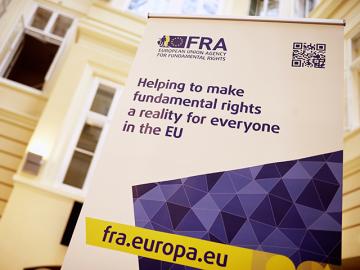“This political agreement is an important milestone for FRA,” says FRA Management Board Chair Élise Barbé. “By making explicit police and judicial cooperation in criminal matters is covered by the scope of its mandate, it enables the Agency to be consistent with the changes brought about by the Treaty of Lisbon and to provide its expertise on fundamental rights wherever it seems relevant. The Management Board welcomes this step forward, which it previously requested on several occasions.”
“A stronger Fundamental Rights Agency sends a clear signal that the EU stands firmly behind its core values of equality, inclusion, democracy and justice,” says FRA Director Michael O’Flaherty. “I am proud of the trust and recognition that EU institutions and Member States continue to place in the Agency. We will remain steadfast in delivering the advice and expertise that is so needed today as we continue to live in the shadow of the pandemic that is reinforcing social inequalities.”
The renewed mandate sees important changes to how FRA currently operates and how it is governed.
FRA’s areas of work will no longer be based on a five-year multiannual framework subject to approval from EU institutions. This will allow FRA to better plan its work and thematic focus over time and to adapt it annually to emerging priorities in close cooperation with its stakeholders.
Technical amendments, in line with common principles across all EU agencies, will also streamline operations through simplification, better governance and efficiency gains.
Supporting the new direction, the European Parliament called on the European Commission to consider a more comprehensive and ambitious revision of the FRA Regulation in the future to strengthen further the Agency.
The renewed regulation will enter into force on the twentieth day following its publication in the Official Journal of the European Union expected for 7 April.
